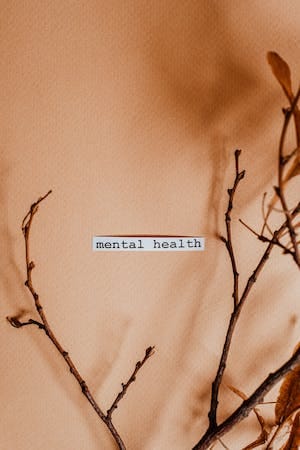Embracing Scientific Wisdom and separating pseudoscience
Mental health is a serious and complex issue that affects millions of people in India and around the world. It requires proper care and support from qualified and trustworthy professionals, not from self-styled godmen who claim to have miraculous solutions. These godmen have been spreading false and harmful information about health conditions, especially during the pandemic. They have told people that they can boost their immunity and cure their depression by being exuberant, loving, or meditating. However, research has shown that some of these inapropreate meditation and mindfulness based on pseudoscience can have negative effects on some people, such as triggering depression and anxiety. These godmen are not only misleading people, but also preventing them from seeking help and treatment when they need it. We need to be critical and informed about the sources and claims of any health advice, and to consult with experts before adopting any health practices. We also need to embrace a scientific and rational approach to mental health, rather than a wishful or blind one.
Mental health is a state of well-being in which a person can cope with the normal stresses of life, work productively, and contribute to their community. Mental health disorders are conditions that affect a person’s thinking, feeling, mood, or behavior, and can interfere with their daily functioning and quality of life. Some of the common mental health disorders are depression, anxiety, bipolar disorder, schizophrenia, and substance use disorders.
However, in India, many people do not have a clear understanding of mental health and mental health disorders, and often hold negative and false beliefs about them. These beliefs can create myths and stigmas that prevent people from seeking help, receiving treatment, and living a fulfilling life. Some of the myths and stigmas that exist in India are:
1) — Mental health and mental health disorders are not real or important.
Many people think that mental health and mental health disorders are not as serious or valid as physical health and diseases. They may dismiss them as trivial, imaginary, or exaggerated, and ignore or deny their symptoms. They may also believe that mental health and mental health disorders are not relevant or applicable to them or their culture, and that they only affect certain groups of people, such as the weak, the rich, or the westernized.
2) — Psychiatric treatment and medication are harmful or unnecessary.
Many people have negative views about psychiatric treatment and medication, and think that they are harmful, ineffective, or unnecessary. They may fear that psychiatric treatment and medication will cause side effects, damage the brain, or make the person addicted or dependent. They may also think that psychiatric treatment and medication will change the person’s personality, or suppress their natural emotions. They may resist or refuse to seek or accept psychiatric treatment and medication, or stop them without consulting a psychiatrist.
The fact is nowadays the modern medicine can offers safest psychiatric drug with less side effects and with short term specific use will lead to more effectiveness in our condition
3)- Mental health and mental health disorders are incurable or shameful.
Many people think that mental health and mental health disorders are permanent and hopeless, and that there is no cure or treatment for them. They may also think that mental health and mental health disorders are shameful and disgraceful, and that they reflect poorly on the person or their family. They may avoid or hide their condition, or lie about it, and suffer in silence. They may also face discrimination, rejection, or abuse from others, who may treat them as inferior, dangerous, or contagious.
4)- Mental health and mental health disorders are caused by supernatural or personal factors.
Many people believe that mental health and mental health disorders are influenced by supernatural forces, such as evil spirits, curses, or karma. They may attribute them to the person’s sins, past actions, or fate, and seek solutions from religious or spiritual sources, such as rituals, prayers, or offerings. They may also blame the person or their family for their condition, and expect them to overcome it by their own willpower, faith, or morality.
5)- Spiritual gurus and alternative therapies are better than psychiatric treatment and medication.
Many people have more trust in spiritual gurus and alternative therapies than in psychiatric treatment and medication, and think that they can heal mental health and mental health disorders by supernatural or natural means. They may follow the advice of self-proclaimed spiritual leaders, who may exploit their vulnerability, mislead them with pseudoscience, or harm them with unethical practices. They may also use unproven or harmful alternative therapies, such as exorcism, faith healing, or herbal remedies, which may interfere with or replace psychiatric treatment and medication.
These myths and stigmas are not only detrimental for the person with mental health and mental health disorders, but also for the society as a whole. They create barriers to mental health awareness, education, and care, and contribute to the burden of mental health and mental health disorders in India. They also violate the human rights and dignity of people with mental health and mental health disorders, and prevent them from living a fulfilling and productive life.
The truth is that mental health and mental health disorders are real and important, and that they can affect anyone regardless of their age, gender, religion, or social status. Mental health and mental health disorders are not caused by supernatural or personal factors, but by various biological, psychological, or social factors. Mental health and mental health disorders are curable and manageable, and that there are effective and safe treatments and medications for them. Psychiatric treatment and medication are not harmful or unnecessary, but helpful and beneficial, and that they can help reduce symptoms and improve outcomes. Psychiatric treatment and medication are prescribed and monitored by qualified mental health professionals, who can adjust the dose and duration according to the person’s needs and response. Psychiatric treatment and medication are not addictive or permanent, but can be stopped or changed under the guidance of a psychiatrist, who can help prevent or manage any side effects or withdrawal effects.
While spiritual gurus and alternative therapies may have a role in supporting the person’s well-being, they cannot replace or substitute psychiatric and psychology treatment and medication. They should be used only as complementary or adjunctive therapies, and only after consulting with a psychiatrist and psychologist who works in a cooperative team, who can ensure their safety and compatibility with the right therapy and medication. They should not be based on false or misleading claims, or involve any coercion or exploitation of the person.
The best way to combat the myths and stigmas about mental health and mental health disorders in India is to increase the awareness and education of the public and the professionals, and to promote the access and availability of quality mental health care. A qualified psychologist is a mental health professional who has the training and skills to diagnose and treat psychological disorders. They can help people cope with life issues and mental health problems by using various techniques based on scientific research and evidence. They can also provide assessments, tests, and evaluations to understand the nature and severity of a person’s mental health condition and guide appropriate treatment. In a multidisciplinary field like this a qualified psychologist and psychiatrist can help you with many methods and mindfulness techniques based on scientific evidence.
It is also important to empower and support the needful person with mental health and mental health disorders, and to respect and protect their rights and choices. By doing so, we can create a more compassionate and inclusive society, where people with mental health and mental health disorders can live with dignity and hope.
Author: Ajay karthik






